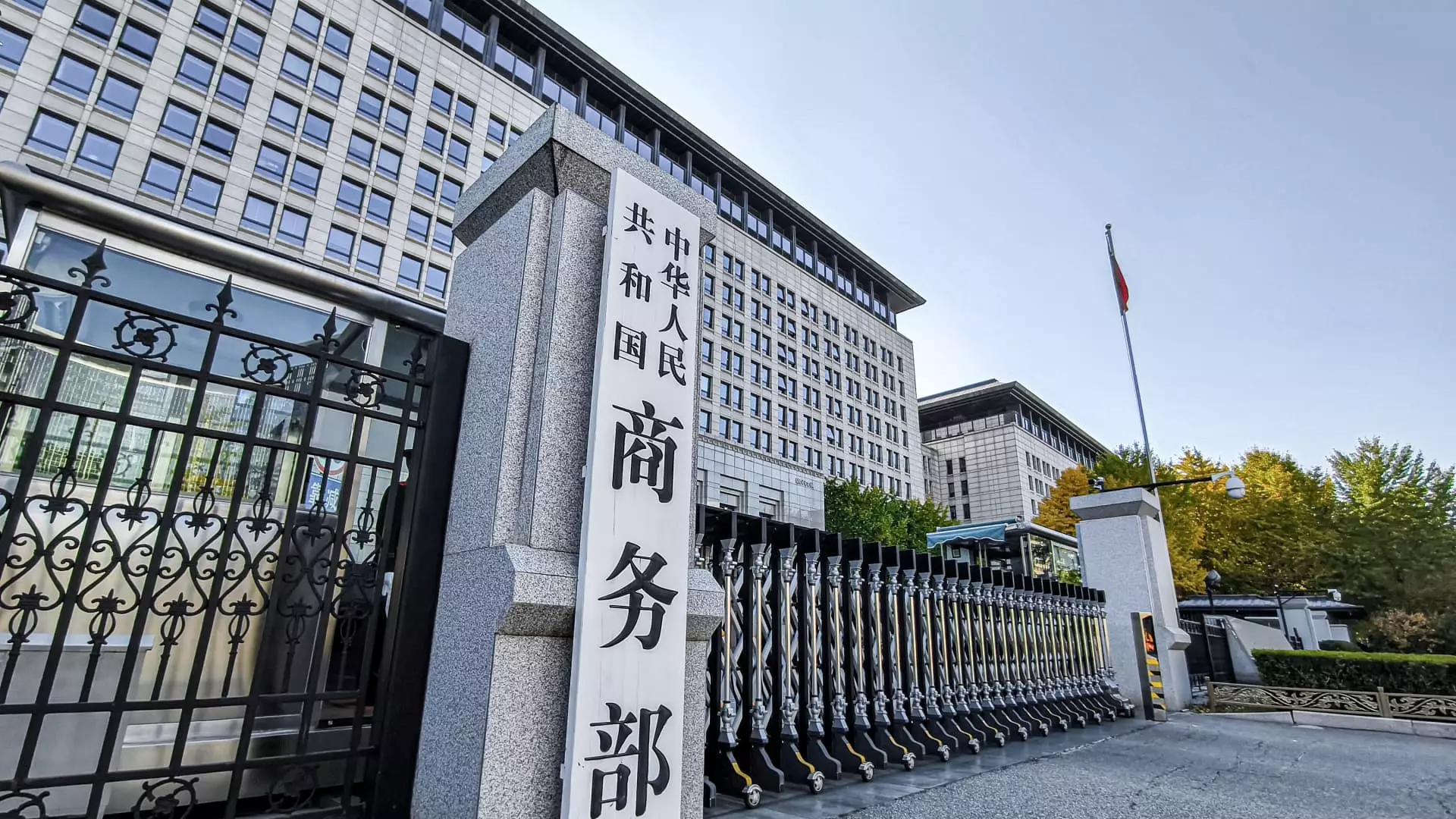The imposition of massive tariffs by Donald Trump represents not just a simple economic maneuver but a profound turning point in global trade relations. As the U.S. has escalated its tariff game, this act of economic aggression isn’t merely a dispute between two nations; it reverberates across the globe, shaking the very foundations of established trade agreements. The Chinese Ministry of Commerce’s insistence on “resolute counter-measures” underscores the escalating tension between the world’s foremost economies, stretching far beyond the superficial narrative of bilateral trade deficits.
More than Just Numbers: The Real Costs of Tariffs
When Trump announced a staggering 34% tariff on Chinese goods, he wasn’t merely trying to balance the scales of trade—he was igniting a wildfire of retaliatory measures that could spiral out of control. What he fails to understand is that these tariffs will not merely chisel away profits from big corporations but inflict painful consequences on working-class families who might face higher prices for everyday goods. This strategy of using tariffs as a tool for diplomacy not only ignores the complexities of international trade but also demonstrates a lack of understanding of economic interdependence in a globalized world.
The Global Pushback
Countries such as Canada, South Korea, and Australia haven’t just rolled over in the face of American tariffs; they are responding with a vigor that reveals their own economic interests are at stake. The Canadian Prime Minister’s vow to tackle the tariffs “with purpose and with force” illustrates a growing resistance to what many see as U.S. unilateralism. Meanwhile, Australia’s Prime Minister slapped down the notion that tariffs are an “act of a friend,” highlighting the deterioration of diplomatic relations spurred by Trump’s policies. Such strong pushback signifies that America is not the uncontested global power it once thought it was.
A Dangerous Precedent
Trump’s tariffs don’t just disrupt trade; they set a perilous precedent for how international relationships are managed. Unilateral tariff impositions are seen as bullying tactics that violate the respected norms of international diplomacy. As nations around the world express dissatisfaction and even mount retaliatory measures, the ramifications are vast. A trade war fueled by arrogance threatens to collapse the very architecture of global trade agreements painstakingly built over decades. This whimsical approach to diplomacy raises the question: what lies next if a nation feels wronged by U.S. policy—will they too default to tariffs, thereby escalating tensions further?
The Disquieting Future of Trade Relations
Ultimately, Trump’s punitive tariffs have ignited a potential cascade of economic conflict that could leave both champions and critics of his approach disheartened. Far from fostering a spirit of cooperation, unilateralism displays a reluctance to engage in meaningful dialogue. As trade wars unfold, we must question whether an administration so steeped in isolationism can adapt to the realities of an interconnected world. Lamentably, the retaliation faced by the U.S. reveals the inherent risk in a strategy marked by myopia rather than foresight. The stakes are higher than mere tariff rates; they encompass the broader issue of maintaining global harmony and ensuring that trade remains a bridge rather than a battleground.

Leave a Reply